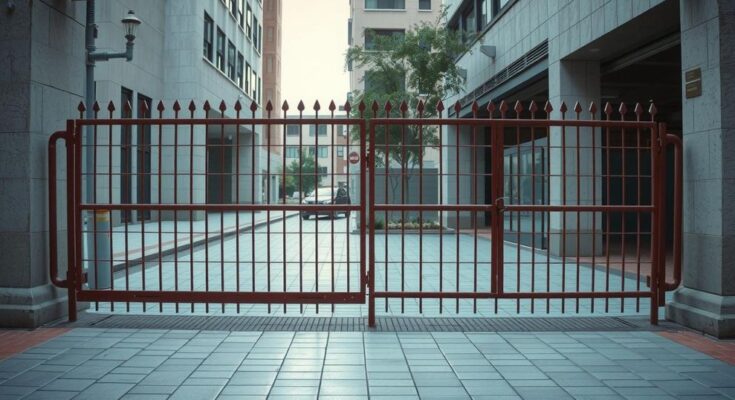Dire Straits for Civic Freedom in Tunisia
In a troubling turn of events, the Tunisian government has intensified its repression of dissenting voices and slammed the door on civil society, as highlighted in Human Rights Watch’s World Report 2025. Authorities have undermined the credibility of the October presidential elections, ramping up politically motivated detentions, including those of potential challengers. Just days before the vote, they hurriedly amended the electoral law, raising concerns over fairness and transparency.
A Targeted Campaign Against Dissent
Bassam Khawaja, deputy Middle East and North Africa director at Human Rights Watch, noted, “It is clear that Tunisian authorities deployed all their efforts to silence, prosecute, and imprison President Kais Saied’s critics and opponents.” This systematic crackdown has also ensnared civil society members and journalists, effectively suffocating Tunisia’s previously hard-fought civic space.
Political Detentions Amid Ongoing Abuses
By November, over 80 individuals including activists and journalists were detained purely for exercising their rights. Security forces have continued perpetrating abuses against vulnerable groups like migrants and refugees, often escaping accountability. An alarming trend of deaths at sea among those fleeing to Europe has persisted, coupled with arbitrary arrests of those offering aid to asylum seekers.
Economic Hardships Compounded by Repression
Tunisia grapples with a deepening economic crisis marked by soaring debt and inflation, impacting essential rights. While hundreds remain imprisoned for check-related offenses, recent legal reforms enacted in July have released over 500 people. Yet, the European Union’s continued financial backing supports the very authorities committing these human rights violations.
Calls for Freedom and Responsibility
Human Rights Watch urges Tunisian authorities to release detainees and permit civil society and media to operate without hindrance. It emphasizes that Tunisia’s international partners must vocally champion human rights and reconsider their funding of abusive migration practices.
– Tunisia faces heightened government repression against dissenters. – Over 80 individuals detained for political reasons as of November. – Ongoing abuses against migrants with impunity. – Economic crisis exacerbated by financial strain and political oppression. – Human Rights Watch demands the release of detainees and the safeguarding of civic space.
The Tunisian government’s escalating repression of dissent and civil society signals a distressing trend of authoritarianism. As the credibility of elections wanes and political detentions rise, calls for accountability and the protection of human rights are paramount. International partners must act to support civic freedoms and address the severe human rights violations ongoing in Tunisia.
Original Source: www.hrw.org



